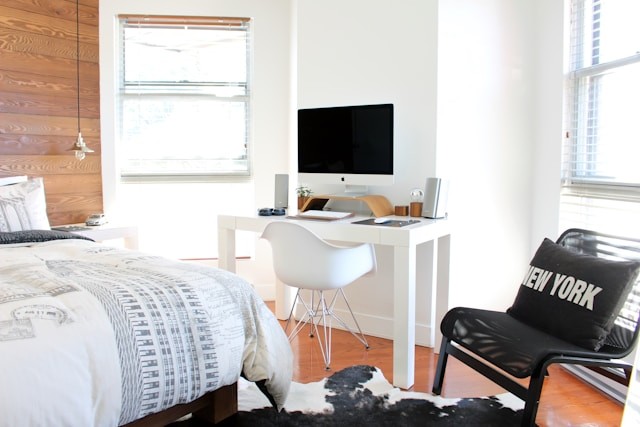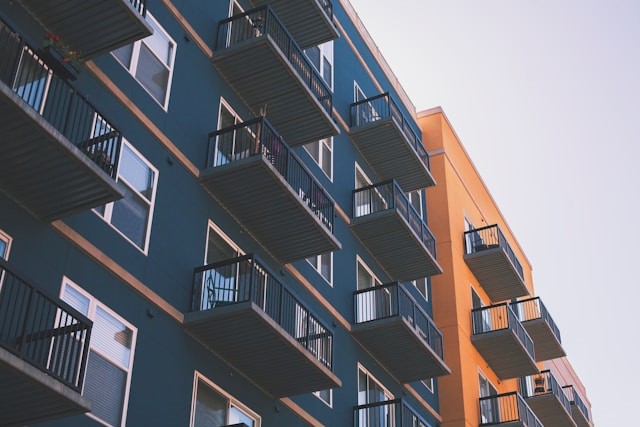
Tourist flats have become a popular investment option. However, understanding the benefits and challenges involved is crucial. In this article, we explore what you should consider in detail to give you a balanced and practical perspective on this investment approach.
While the prospect of generating income through short-term rental in areas of high tourist demand is attractive, you must consider factors such as taxation, property management, local regulations and the impact it has on the community before entering the sector.
What is a tourist flat?
As already mentioned, a tourist flat is a short-term rental property for tourists. They are usually in areas with high tourist demand and are fully furnished and equipped to provide guests with a comfortable experience.
If you're considering buying a tourist flat, remember that you must understand the tax and legal implications involved, as well as the commitment required to manage and upkeep the property. Moreover, you should take into account the market's competitiveness, which can vary according to season and location, as is the case of cities with a high tourist flow.
Profitability of tourist flats
The key to maximising the profitability of tourist flats lies in several factors such as location. A flat located in the heart of a large city or close to points of interest can guarantee high occupancy and a regular flow of income.
In addition, the accommodation quality is something that cannot be underestimated: a modern, safe and comfortable accommodation is more likely to stand out from the rest and attract guests who don't mind paying higher prices.
On the other hand, efficient property management is another key pillar to ensure financial success. This includes the entire process, from effectively promoting the flat on tourist rental platforms, to optimising the guest experience through automated processes, such as digital check-in, among many others. All of these tools can be a helping hand in this regard, facilitating a comprehensive management that saves time and resources.
It is also important to consider working with a holiday rental management software that will help you automate all the tasks involved in running a tourist flat: organising bookings in your calendar, receiving payment for them and much more.

Tourist flat taxation
Entering the world of tourist flats involves not only understanding the real estate market but also navigating the complex tax structure that accompanies this form of investment. The taxation associated with owning a tourist flat varies considerably depending on the region and can have a significant impact on net profits.
Some of the taxes that may apply include Personal Income Tax (IRPF) on income earned, Property Tax (IBI) and specific local taxes for tourist rentals in some cases. Any investor must be aware of these tax obligations and consider seeking professional advice to comply with all the necessary formalities.
Tourist accommodation management and maintenance
Tourist flat maintenance requires effort and dedication: from cleaning to customer service, every detail counts to ensure a positive experience that translates into good reviews and consistent footfall. Effective management is a critical factor that can make the difference between a successful flat and one that fails to attract guests.
Comprehensive tourist flat management includes several tasks such as updating listings on rental platforms, communicating quickly and efficiently with guests, handling bookings and collecting deposits or payments. Moreover, another important aspect is having a cleaning and maintenance service that ensures that the flat is always in top form and stands out for its cleanliness.
Impact on the local community
The accumulation of tourist flats can have an impact on the local community: from increased real estate prices to changes in neighbourhood lifestyles. You should therefore consider these factors before investing in this sector.
Tourist accommodation can change a neighbourhood, affecting traditional businesses and altering the area's social dynamics. Some neighbours may welcome the economic dynamism that tourists bring, while others may feel that the identity and cohesion of their community are lost.

Maximising holiday rental income
Platforms like Airbnb have revolutionised tourist accommodation, allowing owners to manage their bookings and optimise their income. However, you must also invest in marketing and pricing strategies to stand out in a competitive market. To effectively maximise revenue, you need to understand market dynamics and apply tactics that increase your tourist flat's visibility and attractiveness. This includes a strong online presence with attractive listings and a dynamic pricing strategy that adjusts to demand and local events.
Moreover, don't forget that it is also important to consider offering additional services that can generate extra income per booking, such as tours, bike rentals or agreements with local businesses. This concept is known as cross-selling. Revenue management should be proactive and adapt to market fluctuations, always offering a quality service that justifies competitive rates. It is important to bear in mind that this aspect is a determining factor for this type of management to be financially successful.
Operating efficiency
Technology plays a crucial role in effectively managing a tourist flat, and operational efficiency is not only about reducing costs and time but also the ability to deliver exceptional service that translates into higher customer satisfaction and better reviews. Remember that implementing property management systems, mobile apps for guest communication and/or cleaning management platforms are examples of how technology can transform a tourist flat's day-to-day operations.
Automating repetitive tasks frees up resources that can be used to improve other aspects of the business, such as personalised services or preventive maintenance of the property. In this context, you need to keep abreast of the latest technological trends and constantly assess their impact on comprehensive tourist accommodation management.
Common challenges when buying a tourist flat
As mentioned above, tourist flat owners face several challenges from legal restrictions to managing guest incidents. This is why you must be prepared and have different strategies in place to deal with these issues.
You need to be aware that owning a tourist flat brings with it several challenges that can impact both the business's profitability and operations. These challenges not only affect the day-to-day management but can also influence the perception of the property by guests and the local community.